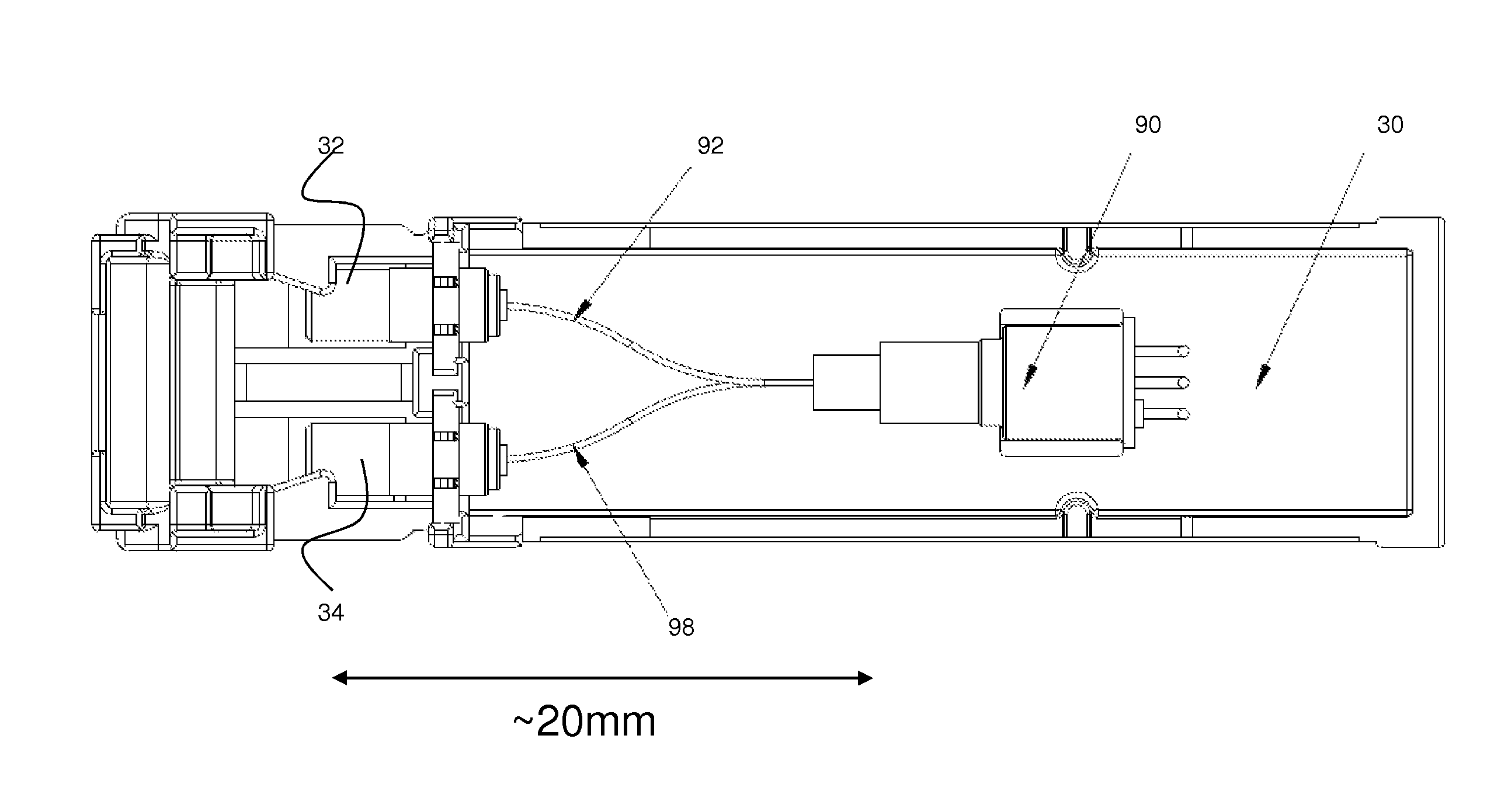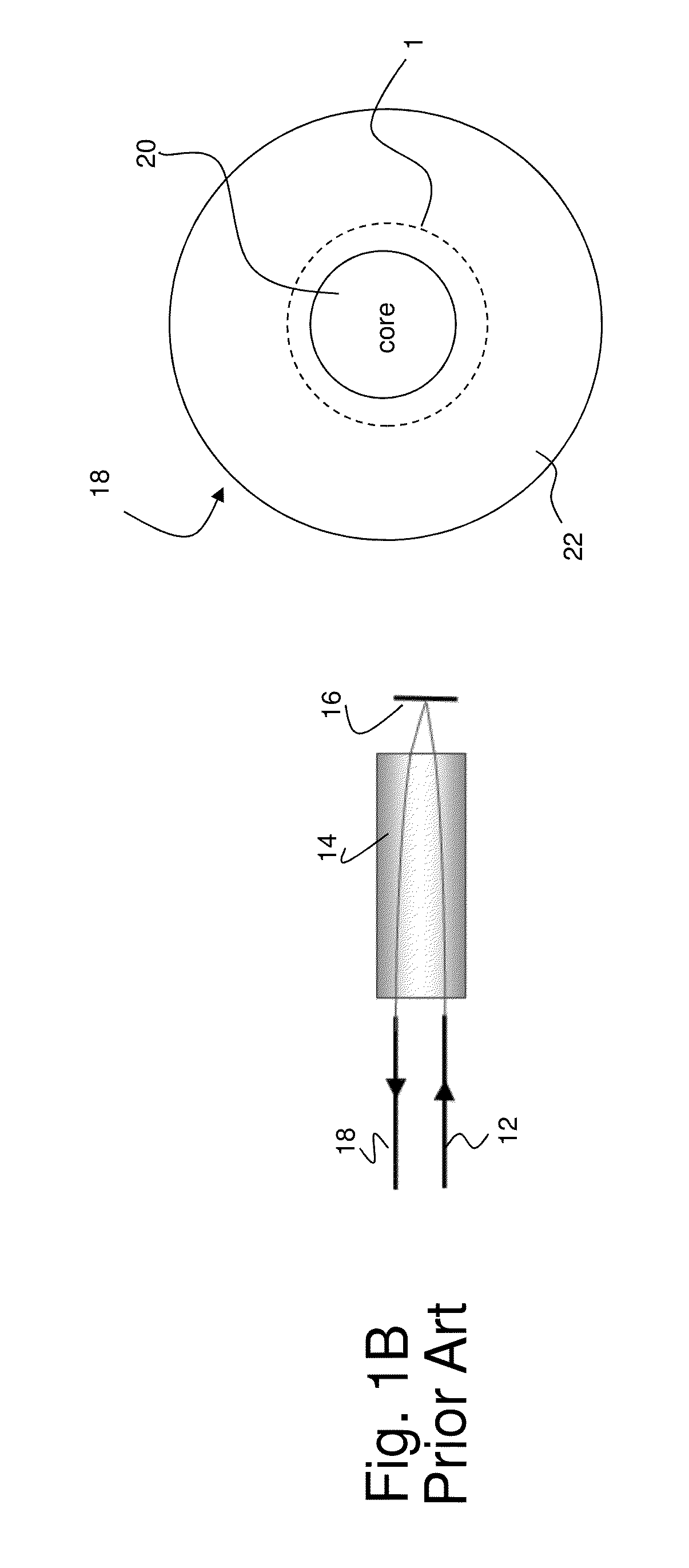Small form factor variable optical attenuator with cladding mode suppressing fiber
a technology of optical attenuators and fibers, applied in the field of variable optical attenuators, can solve the problems of increasing the need for channel power equalization, increasing the cost and complexity of optical networks, and increasing wdl and pdl
- Summary
- Abstract
- Description
- Claims
- Application Information
AI Technical Summary
Benefits of technology
Problems solved by technology
Method used
Image
Examples
Embodiment Construction
[0034]A prior art VOA technology based on a Electro-Static (ES) Micro-Electro-Mechanical (MEMS) chip, is illustrated in FIG. 1A. The ES-VOA component 10 has an input optical fiber 12, a lens 14, a MEMS tilting minor 16 and an output optical fiber 18. The lens 14 focuses the input light onto the MEMS tilting minor 16, the reflected light is directed towards the output fiber 18. Input optical fiber 12 and output optical fiber 18 are supported in ferrule 13. A voltage is applied to the MEMS chip, and the voltage amplitude controls the mirror tilt angle. By varying the voltage and minor tilt angle, the position of the reflected spot on the output fiber is varied. With the output spot aligned to the center of output fiber core, shown in FIG. 1B, the attenuation is minimum and limited only by the insertion loss (typically ˜0.5 dB). As the output spot 1, of the beam of reflected light, is misaligned relative to the output fiber core 20, as seen in FIG. 1C, the amount of light launched into...
PUM
 Login to View More
Login to View More Abstract
Description
Claims
Application Information
 Login to View More
Login to View More - R&D
- Intellectual Property
- Life Sciences
- Materials
- Tech Scout
- Unparalleled Data Quality
- Higher Quality Content
- 60% Fewer Hallucinations
Browse by: Latest US Patents, China's latest patents, Technical Efficacy Thesaurus, Application Domain, Technology Topic, Popular Technical Reports.
© 2025 PatSnap. All rights reserved.Legal|Privacy policy|Modern Slavery Act Transparency Statement|Sitemap|About US| Contact US: help@patsnap.com



